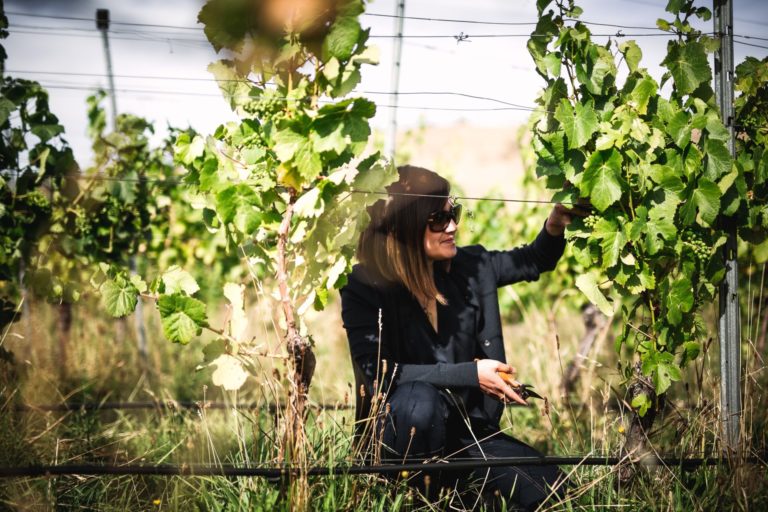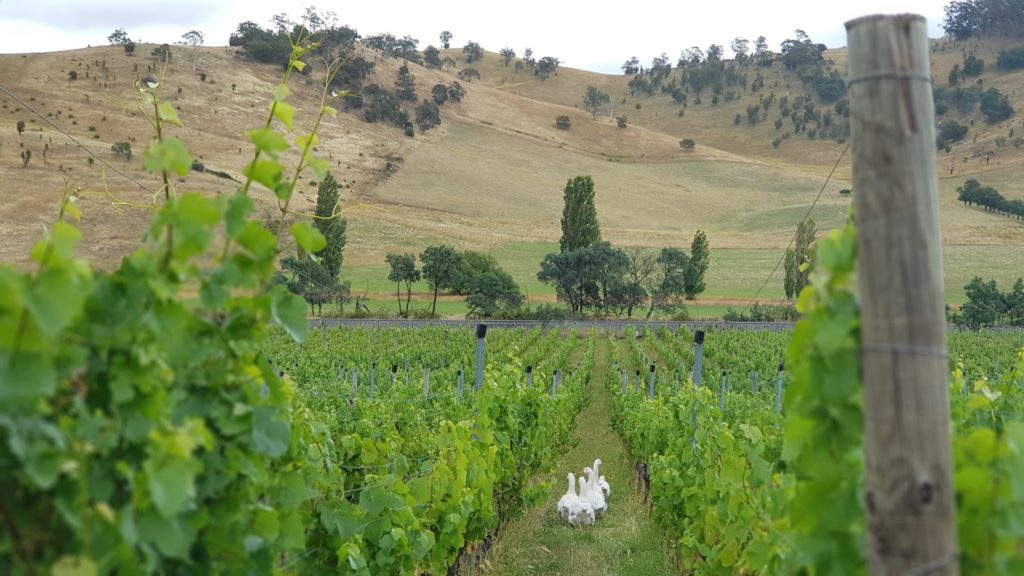Anh Nguyen’s winemaking business, Torch Bearer Wines, is a great example of where STEM and agriculture intersect.
Her journey to making it happen is particularly intriguing. The daughter of two engineers, and now an engineering academic herself, she found her life’s purpose in in the agriculture sector and a passion for regenerative and natural farming principles.
Having lived and studied all over the world, she started work as a research engineer and then in 2017 upon seeking a career path with more purpose, moved with her family to Tasmania.
Anh began pursuing her new-found passion for agriculture, taking ownership of a vineyard in South Tasmania and developing sustainable ways of practicing the art of winemaking. She started Torch Bearer Wines with an ambition to use her engineering background to develop smart biodynamic farming techniques.
It was this innovation and creativity that saw her named the 2019 TAS AgriFutures Rural Women’s Award Winner. A prize that then enabled her to develop her business even further.
Below, Anh is the latest woman in agriculture to answer our Q&A, thanks to the support of AgriFutures.
You’ve had quite an incredible career journey, having been born and raised in Vietnam, then completing a tertiary education in the engineering field, obtaining a PhD in the US from the University of Massachusetts. What made you shift to the agriculture sector after so many years dedicated to pursuing a career in engineering?
The change from engineering into winemaking is a natural evolution – I want to show my inner self, my two little girls, and others that there is an “uncommon” way of life we should all be living, by pursuing what you are passionate about.
It’s the next chapter in pursuing my purpose in life – caring for the land, the environment and its natural world.
Can you tell us how and why you started Torch Bearer Wines?
I started Torch Bearer Wines in 2017 because, simply, I love wine and love growing grapevines. More than that, I hope to use wine to communicate and demonstrate a sustainable farming technique.
I learnt it can take over 500 years to form an inch of topsoil, and hundreds of millions of years to form a fertile layer of soil full of micro life forms such as earthworms, microbes and fungi – or in other word the “wood wide web” that brings us foods and nurture life on Earth. It’s also where the CO2 is being naturally captured and stored every day. However, less than 100 years of modern farming and deforestation have been destroying and degrading the natural world by using toxic chemicals, i.e., pesticides, weed killers, and synthetic fertilizers of all kinds.
I believe it’s everyone’s responsibility these days to act in whatever small way you can and that caring for the soil is the easiest, and most important steps toward a sustainable future.
2020 was a tough year for everyone around the globe after the pandemic hit. How did this affect your business and how are your powering through these rough changes?
For the domestic market, when COVID hit in 2020, we were lucky that we lost only about 6 months until things were getting back pretty much to normal. It happened during vintage time in 2020, and that actually gave me more time to focus on wine making, doing some small batches and trying some experimental wine making.










